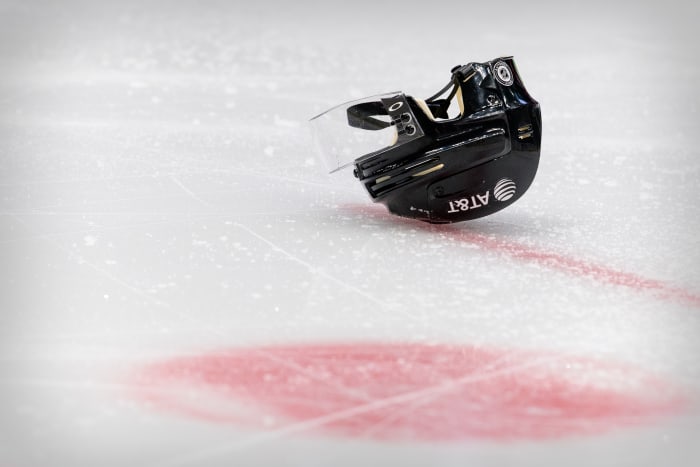The COVID-19 pandemic still hovers over professional sports.
As training camps slowly begin to creep over the horizon, the NHL unveiled its COVID-19 protocols for the upcoming 2022-23 season, announcing this new policy in a seven-page document released on Tuesday evening in conjunction with the NHL Players’ Association.
As stated in the official document, these protocols have been created by the NHL in recognition of the health of players and club personnel remaining the NHL’s priority, the high vaccination rate of club hockey operations and player personnel, the high positivity rate of COVID-19 in the NHL from mid-December 2021, to February 2022, and the continuing COVID-19 shift from a pandemic to an endemic state.
For the coming season, players are not required to have received the COVID-19 vaccine but are strongly encouraged to do so as well as keep up with the booster doses they are eligible for.
Travel is one of the most pressing issues when it comes to COVID-19, and the NHL has instituted some new guidelines for the coming season, allowing clubs to suspend unvaccinated players who are ineligible to cross the border under federal and provincial law without pay for every day they are absent from team activities.
If a player develops COVID-19 symptoms and tests positive, that player will isolate for at least five days and only be permitted to exit isolation when their symptoms are gone and they have received permission from the NHL’s Chief Medical Officer and the NHLPA’s Chief Medical Consultant. .
Players who continue to exhibit symptoms following the initial five-day isolation will continue to isolate and only be permitted to leave after a lab-based PCR test returns negative or a lab-based PCR test has a CT value under 30, or two negative molecular point of care tests are collected more than two hours apart.
If a player tests positive for COVID-19, said player will continue to be paid their salary for as long as they are unable to participate in club activities.
As for the postponement or cancellation of games, the NHL has outlined that the league will work in tandem with the commissioner to determine whether playing games offers a potent risk to the health of players and club personnel, and will then make a judgment as to whether the games in question will be moved to a later date.
Given how many games were postponed last season, causing a massive headache for all involved, the NHL likely wants to avoid a repeat occurrence at all costs.
.
